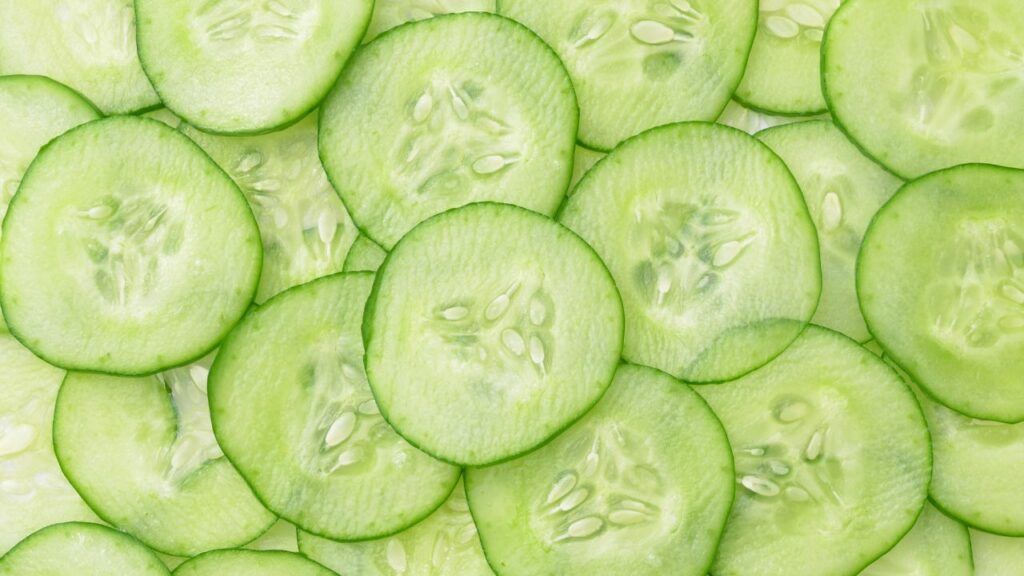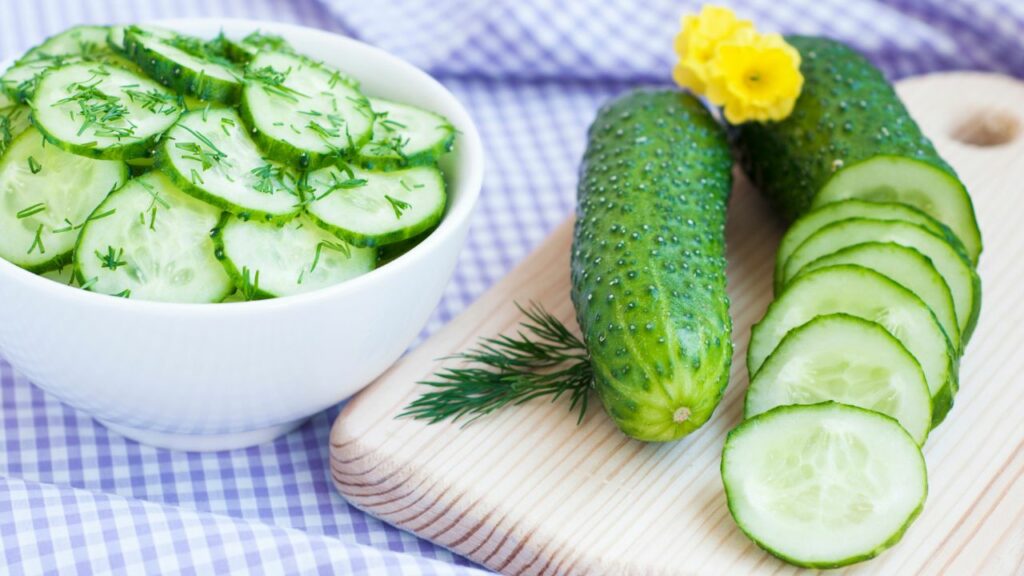As a bunny owner, we can never be too careful with what our fur friend eats. With a strict diet of hay and water, adding other vegetables can be a tasty treat. But can your bunny have cucumbers?
Bunnies can eat cucumbers, but they should be given in moderation as part of a balanced diet. Remember to wash cucumbers thoroughly and remove the seeds before feeding them to your rabbit.
I’m here to guide you through everything you need to know about feeding cucumbers to your adorable pet.
Can Bunnies Eat Cucumbers?
Rabbits can safely eat cucumbers as a healthy and refreshing snack. These low-calorie vegetables are a great source of hydration, crucial for keeping rabbits healthy.
Cucumbers also contain essential vitamins and minerals, such as vitamin C, which helps support a strong immune system, and potassium, necessary for regulating blood pressure.
Another benefit of cucumbers for rabbits is their high fiber content. Fiber is vital for maintaining healthy digestion and preventing gastrointestinal problems, such as bloating and diarrhea.
However, cucumbers should not make up most of a rabbit’s diet. Rabbits need a well-balanced diet that includes hay, fresh vegetables, and a limited amount of pellets to meet their nutritional needs.
When feeding cucumbers to rabbits, wash them thoroughly to remove any pesticides or harmful substances. Additionally, it’s best to remove the seeds before feeding cucumbers to rabbits as they can be high in fat and cause digestive issues if eaten in large amounts.
Can Bunnies Eat Cucumber Peels?

While rabbits can safely eat cucumber peels, ensure they are thoroughly washed to remove harmful substances or pesticides. Additionally, it’s important to note that some rabbits may not enjoy the texture of cucumber peels and may prefer the softer flesh of the cucumber instead.
When introducing cucumber peels to your rabbit’s diet, it’s best to do so slowly and in small amounts to avoid adverse reactions.
This is especially important if your rabbit has not eaten cucumber peels before or has a sensitive digestive system. Introducing new foods gradually, you can help your rabbit adjust to their new diet and prevent any digestive problems.
It’s also worth noting that while cucumber peels are safe for rabbits to eat, they should not make up most of their diet. Rabbits need a balanced diet that includes hay, fresh vegetables, and a limited amount of pellets to ensure they receive all the necessary nutrients.
Can Bunnies Eat Cucumber Seeds?
While rabbits can safely eat cucumber seeds, they are high in fat and can cause digestive issues if consumed in large amounts. As such, it’s best to remove the seeds before offering your rabbit cucumbers or choose seedless ones.
Excessive consumption of cucumber seeds can lead to various digestive problems, including bloating and diarrhea.
This is because rabbits are herbivores, and their digestive systems are optimized for processing a diet low in fat. If you’re offering cucumbers to your rabbit, remove any seeds before feeding to avoid any adverse reactions.
Can Rabbits Eat Cucumbers Every Day?

While cucumbers are safe for rabbits, it’s important to remember that they should not be given daily. As with any treat, cucumbers should be offered in moderation as a supplement to a well-balanced diet that includes hay, fresh vegetables, and a limited amount of pellets.
Overfeeding rabbits with cucumbers can cause digestive problems, including diarrhea and bloating. This is because cucumbers contain a high water content, which can disrupt the balance of a rabbit’s digestive system if consumed excessively.
As such, monitor your rabbit’s cucumber intake and ensure they receive a balanced diet that meets all their nutritional needs.
It’s worth noting that rabbits have different dietary requirements at varying stages of their lives. For example, young rabbits require a diet higher in protein and calories. In contrast, older rabbits may require a lower-calorie diet to maintain a healthy weight.
As such, consult a veterinarian to determine the appropriate diet for your rabbit based on age, weight, and overall health.
Cucumber Alternatives For Bunnies
If your rabbit isn’t a fan of cucumbers, or if you’re looking to add variety to their diet, there are plenty of other safe fruits and vegetables that rabbits can enjoy. Some good options include carrots, kale, apples, and strawberries, all of which provide a range of essential vitamins and minerals for a healthy diet.
When introducing new foods to your rabbit’s diet, do so slowly and in moderation to avoid digestive issues. This is particularly important if your rabbit has a sensitive stomach or hasn’t eaten a particular food before.
Offering small amounts of new food over several days can help your rabbit adjust to the new food and prevent any adverse reactions.
Summary
Cucumbers can be a great addition to your rabbit’s diet, but it’s important to remember to offer them in moderation. While they provide hydration, vitamins, and fiber, overfeeding can lead to digestive issues.
So, wash them thoroughly, remove any seeds, and offer them as a supplement to a balanced diet of hay, fresh vegetables, and pellets.





